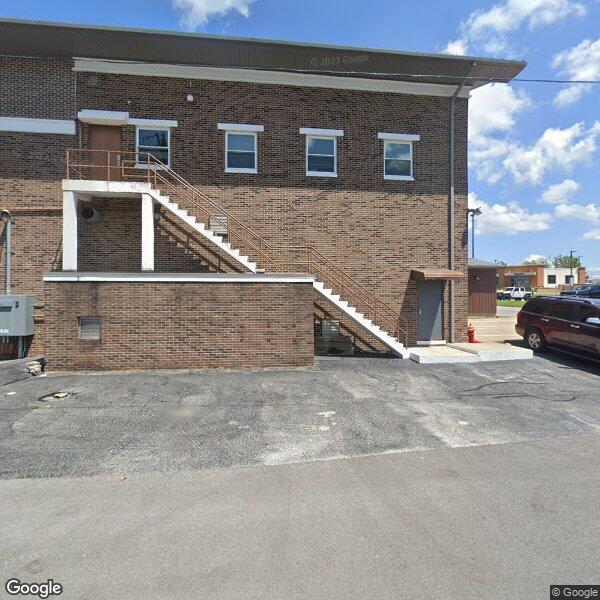The Tennessee Guide to Section 8 Housing
Securing affordable housing in Tennessee can be challenging, but the Section 8 Housing Choice Voucher Program offers valuable assistance to low-income families, seniors, and individuals with disabilities. This program provides financial support to help eligible residents obtain safe and affordable rental housing in the private market. Let's explore how Section 8 operates in Tennessee and how you can benefit from it.
What is Section 8 Housing in Tennessee
The Section 8 Housing Choice Voucher Program is a federal initiative funded by the U.S. Department of Housing and Urban Development (HUD). In Tennessee, the program is administered by the Tennessee Housing Development Agency (THDA) and various local Public Housing Authorities (PHAs). Participants receive vouchers to subsidize a portion of their rent, allowing them to choose housing that meets their needs, provided it complies with program requirements.
What is the Most Section 8 Will Pay in Tennessee?
The subsidy amount is determined by HUD's Fair Market Rent (FMR) for your area and your household's income. Typically, participants pay approximately 30% of their adjusted monthly income toward rent, and Section 8 covers the remaining amount up to the FMR limit. If the rent exceeds the FMR, you may be responsible for paying the difference.
Fair Market Rent
The HUD Section 8 program pays rents for low-income households directly to private landlords. The Housing Authority of Tennessee will pay about 70% of a tenant’s rent, while the tenant will pay the other 30%. Fair Market Rents generally determine the maximum rent that a Section 8 landlord will be allowed to charge their residents. The table below shows current fair market rents for Tennessee.
What are the Tennessee Section 8 Housing Requirements?
To receive Section 8 in Tennessee, applicants must meet certain eligibility criteria set at both the federal and state levels. The first requirement is having a household income below 50% of the area median income, though priority goes to those below 30% AMI.
Applicants also need to pass screening related to citizenship/immigration status, criminal background, and previous participation in assistance programs. All household members should provide documentation of their SSNs as well. The housing funded by Section 8 has to meet minimum standards of health and safety, which necessitates an inspection before moving in.
Once receiving benefits, Tennessee Section 8 participants have to comply with annual recertification of their income, notify the PHA of changes in household composition, maintain the housing unit, and participate in case management if required.
What are the Income Limits for Housing Assistance Programs in Tennessee?
Income Limit
Income Limits are maximum income limits allowed based on household size. The following limits were established by HUD for low income households to be eligible for housing assistance in Tennessee for 2024.
The income limits for Tennessee housing programs such as Section 8 use the average median income for each county or metropolitan area as a base. The limits vary across the state depending on the average household income in each location.
Housing authorities often express income limits for these programs as a percentage of AMI. Limits range from 30% of AMI to as much as 80% of AMI for low-income households.
Applicants should have incomes under the established limits for their household size and area to qualify for housing benefits in Tennessee. Annual adjustments reflect economic changes and allow providers to offer support to targeted income groups in each local housing market across the state.
How Long Does it Take to Get Approved for Section 8 in Tennessee?
The wait time to get approved for Section 8 vouchers in Tennessee can vary greatly depending on location. In some rural counties with smaller populations, the wait may only be a few months from application to voucher issuance.
But in major metro areas, including Nashville, Memphis, and Knoxville, wait times can stretch years due to high demand and limited voucher availability. Individual timelines depend on factors such as household size, income level, and priority status.
How To Qualify for Section 8 in Tennessee
To qualify for Section 8 in Tennessee, you must meet specific eligibility requirements set by the Tennessee Housing Development Agency and your local PHA:
- Income Eligibility: Your household income must be at or below 50% of the median income for your area. Priority is often given to households earning 30% or less.
- Household Composition: List all members of your household accurately, including dependents, elderly members, or individuals with disabilities, as this can impact eligibility.
- Required Documentation: Be ready to submit proof of income (pay stubs, tax returns), identification (driver’s license, Social Security card), and residency details.
- Program Compliance: Applicants must follow Section 8 program rules, including reporting changes in income or household composition and adhering to lease agreements.
Check with your local PHA for additional requirements, as some areas may have specific criteria or preferences for applicants, such as veterans or individuals with disabilities.
How To Apply for Section 8 Housing in Tennessee
Interested households should contact the public housing authority that serves their county or city of residence. Each local PHA has its own application process and waiting list for the federal Housing Choice Voucher program. Typical application requirements include completing an application form with information on household composition, income, and current living situation.
Household members will need to provide documentation including photo IDs, birth certificates, Social Security cards, and proof of income. There is no cost to submit a Section 8 application.
Applicants also need to respond to any request from the PHA to update their application while waiting for approval. When selected, they will undergo eligibility screening, voucher processing, and a housing unit inspection after finding a rental.
Can I transfer my Section 8 Voucher to Tennessee?
If a family wishes to move from another state to Tennessee, they must first get approval from the housing authority that currently administers their voucher. This involves notifying them of the intent to move and verifying that the tenant is in good standing. The housing authority in the destination area in Tennessee must then confirm to the initial PHA that they are absorbing the incoming voucher.
The receiving housing authority must have funding for vouchers available and may require the tenant to get on a waiting list first. There are restrictions for transfers across certain public housing authority jurisdictions. But in most cases, Section 8 recipients who meet program requirements can port their voucher and continue receiving assistance when moving within the U.S. This allows low-income families to pursue new opportunities in places such as Tennessee without losing their rental subsidies that provide stable and affordable housing.
Can I Buy a House with a Section 8 Voucher in Tennessee?
While the primary purpose of Section 8 vouchers is to assist with rental costs, some PHAs offer homeownership programs that allow participants to use their vouchers toward mortgage payments. Eligibility criteria and availability vary, so it's advisable to contact your local PHA to inquire about homeownership opportunities.
What are the Public Housing Authorities in Tennessee?
There are around 100 public housing authorities providing Section 8 vouchers and other rental subsidies across Tennessee. The housing authorities are local municipal or county government agencies that receive federal funding to administer housing programs.
Each PHA serves a specific jurisdiction and geographic area. They maintain waiting lists, issue vouchers, inspect units, and handle other administrative duties for low-income housing. The Tennessee Housing Development Agency provides statewide oversight and support for the local public housing authority network.
Tennessee Waiting List for Section 8 Housing
The Section 8 program in Tennessee has long waiting lists due to high demand and limited federal funding. Each local public housing authority maintains its own waitlist for Housing Choice Vouchers.
In major metropolitan areas of Tennessee, applicants may wait 3 years or longer in many cases from the time of application to receiving a voucher. More rural areas of Tennessee tend to have shorter waits that may range from 1-2 years, depending on voucher availability.
The waiting list status for Section 8 in Tennessee depends on turnover rates and how many new vouchers the local housing authority receives each year.
Is Emergency Housing Assistance Available in Tennessee?
Tennessee does have emergency housing programs for residents facing immediate risk of homelessness. Key services include emergency shelters, rapid re-housing, homeless prevention funds, and transitional housing.
Major cities such as Memphis, Nashville, Knoxville, and Chattanooga have shelters and outreach centers to provide temporary accommodation for those in crisis. More emergency housing is available in larger urban areas than rural parts of Tennessee. Key providers are nonprofit organizations and social service agencies funded by HUD grants and other government sources.
Programs assist with short-term housing, case management, rent/utility help, and connection to more permanent housing solutions. Those at imminent risk of literal homelessness should contact local service providers to seek help accessing emergency housing relief.
Emergency Rental Assistance Serving Tennessee
Davidson County HOPE (Housing, Opportunity, Partnership and Employment) Program
Program Type: County
Details: Offers emergency rental assistance, covid relief, utility assistance and more
Knox Housing Assistance Program
Program Type: County
Details: Offers emergency rental assistance, covid relief, utility assistance and more
Rutherford County COVID-19 Rent Relief Program
Program Type: County
Details: Offers emergency rental assistance, covid relief, utility assistance and more
Shelby County COVID-19 Emergency Rental and Utility Assistance Program
Program Type: County
Details: Offers emergency rental assistance, covid relief, utility assistance and more
Tennessee Housing Development Authority COVID-19 Rent Relief
Program Type: State
Details: Offers emergency rental assistance, covid relief, utility assistance and more
When Should You Apply for Section 8 in Tennessee?
If your family could benefit from Section 8 in Tennessee, applying right away gives you the best chance of approval and a place on the waitlist. Check out the waitlists for more information about the program’s current status.




















